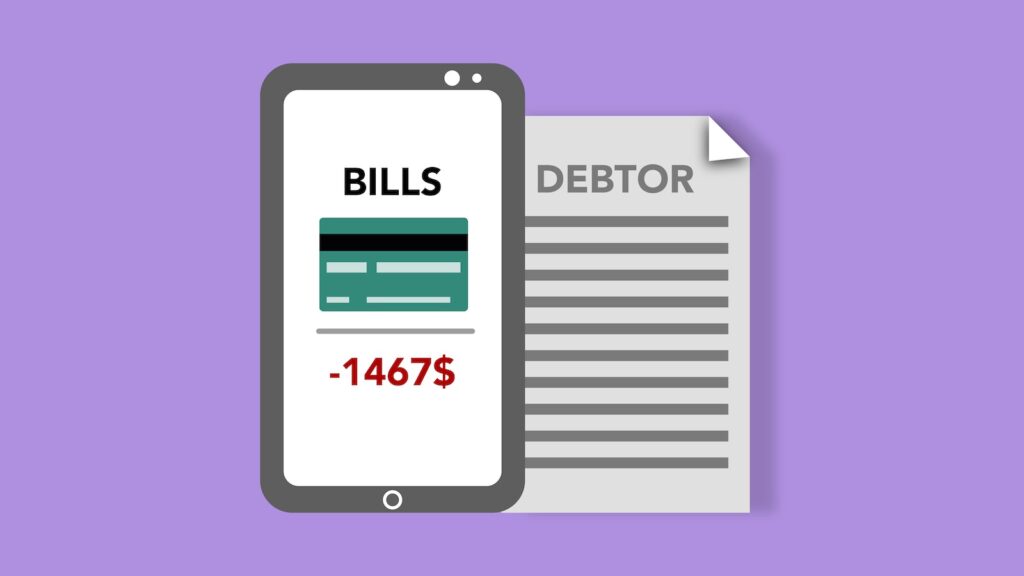Optimize Your Construction Loan Budget: Best Practices for Borrowers
Are you a real estate investor, borrower or lender? Are you currently involved in a construction project or planning one in the near future? If so, you need to know how to optimize your construction loan budget to ensure the success of your project.
Construction projects can be exciting and rewarding, but they can also be incredibly risky, especially when it comes to budget management. Proper budget management is essential to ensure timely project completion, improve project quality, and maximize return on investment.
In this article, we will discuss the best practices for borrowers to optimize their construction loan budget and ensure a successful project. By following these best practices and taking action to optimize your construction loan budget, you can significantly reduce the risk of budget overruns and ensure the success of your project. Let’s get started!
The Importance of Optimizing Your Construction Loan Budget
Construction projects are complex and involve various stakeholders, including borrowers, lenders, investors, contractors, and suppliers. Each stakeholder has a vested interest in the project’s success, and budget management is critical to achieving that success. By optimizing your construction loan budget, you can:
- Reduce your risk of budget overruns
- Ensure timely project completion
- Improve project quality
- Reduce rework costs
- Minimize legal disputes
- Maximize return on investment
By following best practices for optimizing your construction loan budget, you can significantly reduce the risk of budget overruns and ensure the success of your project.
The Worst-Case Scenarios of Budget Overruns
Before discussing the best practices for optimizing your construction loan budget, it’s essential to understand the potential consequences of budget overruns. Budget overruns can lead to various worst-case scenarios, including:
- Delayed project completion: Budget overruns can cause delays in project completion, which can impact the project’s overall timeline and potentially cause other issues.
- Reduced quality of work: When budget overruns occur, corners may be cut to keep the project moving forward, leading to reduced quality of work.
- Increased costs due to rework: If work needs to be redone due to quality issues, it can lead to additional costs that were not included in the original budget.
- Increased interest payments on the loan: When projects take longer to complete, the interest payments on the loan can increase, impacting the overall project budget.
- Legal disputes: Budget overruns can lead to legal disputes between stakeholders, such as contractors and lenders, which can delay the project and increase costs.
- Project cancellation: In extreme cases, budget overruns can lead to project cancellation, causing significant financial losses for all stakeholders involved.
It’s crucial to optimize your construction loan budget to reduce the risk of these worst-case scenarios.
Best Practices for Optimizing Your Construction Loan Budget
Now that we’ve discussed the importance of optimizing your construction loan budget and the potential consequences of budget overruns, let’s dive into the best practices for borrowers to optimize their construction loan budget.
1. Develop a Detailed Budget
The first and most critical step in optimizing your construction loan budget is to develop a detailed budget that includes all costs associated with the project. A detailed budget will help you understand the total cost of the project and make informed decisions throughout the project’s lifecycle. Your budget should include:
- Permit fees
- Architectural and engineering fees
- Site preparation costs
- Materials and labor costs
- Contingency funds
Be sure to communicate your budget with all stakeholders, including lenders, investors, and contractors, to ensure everyone is aware of the total project cost and their financial responsibilities.
2. Hire a Professional Construction Manager
A professional construction manager can provide valuable insight into the project’s budget and ensure that all costs are properly managed. A construction manager can help you develop a detailed budget, track costs throughout the project, and make adjustments as needed. They can also identify potential risks that may impact the budget and develop strategies to mitigate those risks. Hiring a professional construction manager can be a worthwhile investment that can save you money in the long run.
3. Regularly Review Your Budget
Once you’ve developed a budget, it’s essential to review it regularly to ensure that you’re on track. Regularly reviewing your budget will help you identify any potential issues and make adjustments as needed. Be sure to communicate any budget changes with all stakeholders, including lenders, investors, and contractors, to ensure everyone is aware of the project’s financial status. Regular budget reviews can help you stay on track and minimize the risk of budget overruns.
4. Use Technology to Track Costs
Technology can be a valuable tool in optimizing your construction loan budget. There are many tools available to help you track costs throughout your project, including project management software and budget tracking apps. By using these tools, you can quickly identify any cost overruns and make informed decisions to stay on track. Technology can help you streamline your budget management process and reduce the risk of errors and oversights.
5. Manage Change Orders Carefully
Change orders can be a significant source of budget overruns, so it’s important to manage them carefully. Before approving any change orders, ensure that you fully understand the impact on the budget and timeline. Communicate any changes with all stakeholders and make adjustments to the budget and schedule as needed. Be sure to track all change orders and ensure that they are properly documented and approved to avoid any disputes or misunderstandings.
6. Maintain Strong Relationships with Contractors and Suppliers
Maintaining strong relationships with your contractors and suppliers can help you stay on budget. By fostering strong relationships, you can negotiate better prices, reduce delays, and manage risk more effectively. Be sure to communicate your expectations and project requirements clearly to avoid any misunderstandings that could lead to budget overruns. Developing and maintaining strong relationships with your contractors and suppliers can help you optimize your construction loan budget and ensure the success of your project.
7. Plan for Contingencies
Despite your best efforts, unexpected issues can arise during a construction project. To mitigate the impact of these issues, it’s important to plan for contingencies in your budget. A contingency fund can help you address unexpected issues without derailing the project or causing significant budget overruns. Be sure to include a contingency fund in your budget and communicate its purpose and intended use to all stakeholders.
8. Prioritize Value Engineering
Value engineering is the process of finding cost-effective alternatives to maintain or improve a project’s value. By prioritizing value engineering, you can reduce costs without sacrificing quality or functionality. Work with your construction manager and contractors to identify areas where value engineering can be used to optimize your construction loan budget. Value engineering can help you maximize the return on your investment and ensure the success of your project.

Next-Level Best Practices
While the best practices we’ve discussed so far are essential for optimizing your construction loan budget, there are also next-level best practices that can take your budget optimization to the next level. These include:
1. Using Lean Construction Methods
Lean construction methods involve eliminating waste and inefficiencies in the construction process to reduce costs and improve project outcomes. By using lean construction methods, you can reduce the risk of budget overruns, improve project quality, and increase productivity. Some examples of lean construction methods include prefabrication, modular construction, and just-in-time delivery of materials.
2. Implementing a Formal Risk Management Plan
A formal risk management plan can help you identify potential risks that may impact your project’s budget and develop strategies to mitigate those risks. A risk management plan should include a comprehensive risk assessment, risk identification, risk mitigation strategies, and contingency plans. By implementing a formal risk management plan, you can reduce the risk of budget overruns and ensure the success of your project.
3. Investing in Sustainable Construction Practices
Investing in sustainable construction practices can help you reduce costs and improve project outcomes. Sustainable construction practices include using energy-efficient materials, designing for passive solar heating and cooling, and using water-saving technologies. By investing in sustainable construction practices, you can reduce your environmental impact and maximize the return on your investment.
4. Using Prefabrication and Modular Construction Techniques
Prefabrication and modular construction techniques involve building components off-site and then assembling them on-site, which can reduce construction time and costs. By using prefabrication and modular construction techniques, you can reduce the risk of budget overruns, improve project quality, and increase productivity. Prefabrication and modular construction can be particularly useful for repetitive components, such as walls, floors, and ceilings.
Final Words
Optimizing your construction loan budget is essential for the success of any construction project. By following the best practices we’ve discussed and incorporating next-level best practices where possible, you can significantly reduce the risk of budget overruns and ensure the success of your project. Remember to communicate with all stakeholders throughout the project, regularly review your budget, and make informed decisions based on data and analytics. By optimizing your construction loan budget, you can maximize the return on your investment and achieve project success.
Now that you understand the best practices for optimizing your construction loan budget, it’s time to take action. Start by developing a detailed budget for your project and hiring a professional construction manager.
